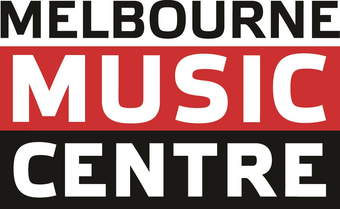Life is a journey filled with a myriad of emotions—joy, sorrow, love, and pain. While navigating these feelings can be challenging, music offers a unique and harmonious way to process and express complex emotions. In this post, we'll delve into how playing an instrument can serve as a healthy and cathartic outlet for the full spectrum of human feelings.
The Language of Music and Emotion
Music has a remarkable ability to transcend words and connect with our deepest emotions. When words fall short, melodies and rhythms step in to convey what we sometimes struggle to articulate. Here's how music becomes a powerful emotional outlet:
1. Catharsis through Creativity: Playing an instrument allows individuals to channel their emotions into creative expression. Whether it's the soulful cry of a blues guitar or the gentle notes of a piano, music provides a canvas for emotional release.
2. Connection to Inner Feelings: Music invites us to explore our innermost feelings, offering a safe space to confront and process complex emotions. It allows us to access emotions that we may have buried or ignored.
3. Stress Reduction: Engaging with music has been shown to reduce stress and anxiety. Playing an instrument can serve as a form of mindfulness, helping individuals stay present in the moment and let go of worries.
4. Healing and Resilience: Music has the power to heal emotional wounds and build resilience. It offers a way to navigate grief, trauma, and adversity by providing solace and a sense of hope.
5. Non-Verbal Communication: Sometimes, emotions are too overwhelming to put into words. Music offers a non-verbal means of communication, allowing individuals to express themselves without the need for explanations.
6. Self-Discovery: As individuals engage with their instrument, they often discover new facets of themselves and their emotional landscape. Music can be a journey of self-discovery and personal growth.
Embracing the Therapeutic Melodies
If you're considering using music as a therapeutic outlet, here are some tips to get started:
1. Choose an Instrument: Select an instrument that resonates with you. It could be a guitar, piano, violin, drums, or any other instrument that speaks to your soul.
2. Start Small: Don't feel pressured to become a virtuoso overnight. Begin with simple exercises and gradually build your skills.
3. Explore Genres: Experiment with different musical genres to find the one that allows you to best express your emotions.
4. Compose Your Own Music: Writing your own music or improvising can be a powerful way to convey your emotions authentically.
5. Seek Guidance: Consider taking lessons from a music teacher or joining a local musical group. Structured learning can provide valuable support.
6. Mindful Practice: Approach your musical practice with mindfulness, focusing on the present moment and your emotional state.
7. Share Your Music: Don't be afraid to share your musical creations with others. Whether performing for friends or recording your work, sharing your music can be a deeply rewarding experience.
Harmony in Healing
In the realm of music, we find a sanctuary for our emotions—a place where the symphony of our inner world can be composed, played, and understood. Playing an instrument offers us the gift of expression, a bridge between our hearts and the world. It is a therapeutic journey of self-discovery, resilience, and healing.
So, let the notes flow and the melodies speak, for in music, we discover the art of expressive healing, and the beauty of our shared human experience.

